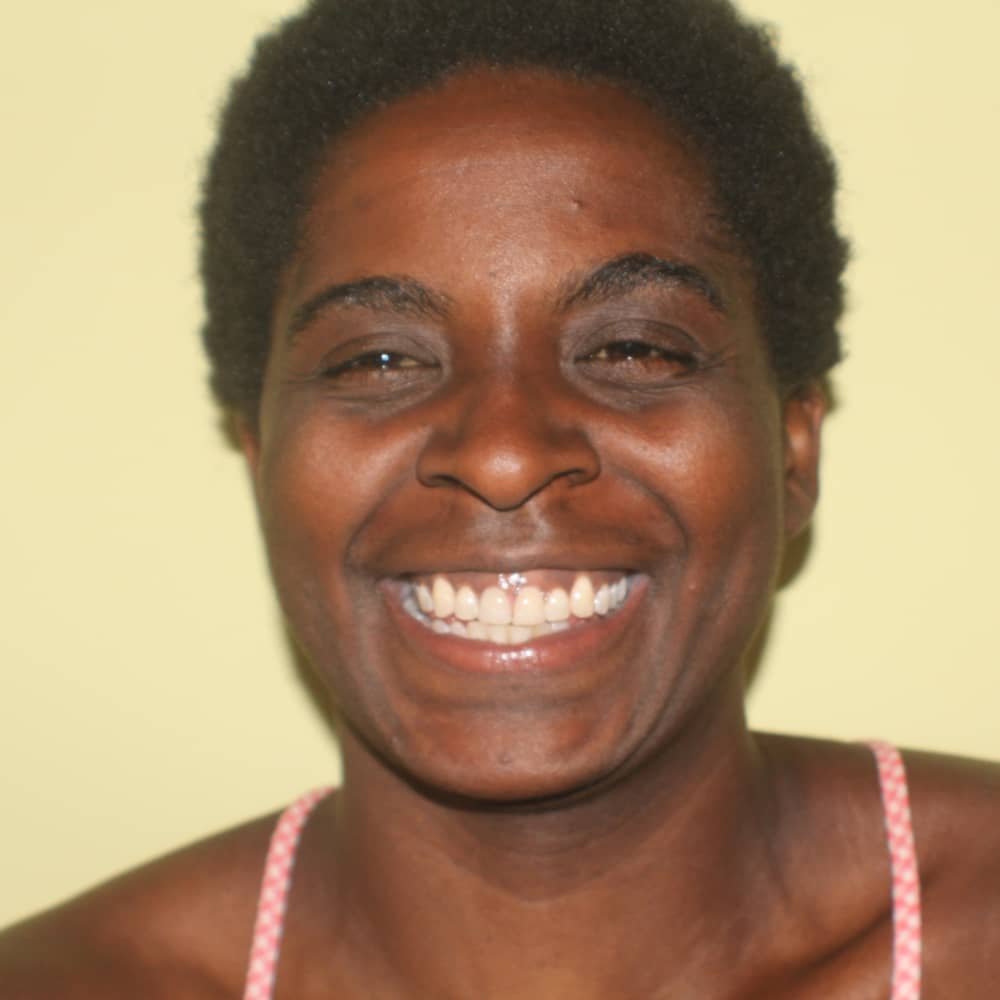White Enrollment Is Increasing at HBCUs. How Will It Impact the Culture?
- HBCUs were created to support higher education for Black students nationwide.
- HBCUs account for 3% of colleges and universities across the country.
- Some HBCUs enroll up to 40% white students.
- Black culture and traditions continue to play an important role at HBCUs.
Rising interest in historically Black colleges and universities (HBCUs) produces discussion about the increase of non-Black students attending these schools. Founded to educate Black students, HBCUs brought higher education to a population often excluded from college opportunities.
Legal segregation required many Black people to seek higher education through institutions like the African Institute, now known as Cheyney University of Pennsylvania, and private institutions dedicated to improving the education and status of Black Americans.
We learn from two HBCU alums about the impact of changing demographics on student experiences and the outlook for these sacred institutions.
Nicole Davis, Ph.D., is an African American alum of Morgan State University. Of HBCUs, Davis says, “What makes this group of schools extraordinary is that they were founded by Black people, not that they are attended only by Black people.”
Dr. Benita Reed, an African American woman who attended Grambling State University and Texas Southern University, says, “Students who attend HBCUs have an opportunity to experience the uniqueness that exists only at HBCUs.”
Her experiences at two HBCUs offer unique insights into understanding the impact of demographic changes at her schools and others across the country.
Popular Online Programs
Learn about start dates, transferring credits, availability of financial aid, and more by contacting the universities below.
Why Students Choose HBCUs
HBCUs account, as of 2014, for just 3% of colleges and universities nationwide. However, they enroll 10% of all African American college students who go on to account for 17% of African American graduates with a bachelor’s degree. Over 210,000 Black students attended HBCUs across the U.S. in 2020, according to the National Center for Education Statistics (NCES).
Representation on Campus
“My HBCU community was so unified and loving. Some of my best memories are when I went away to college,” Reed shares. And for Davis, “The primary advantage to attending Morgan was seeing people who looked like me as professors, coaches, and administrators, not so much as students.”
For Davis, the choice to attend Morgan State University was clear.
Reputable Academic Programs
“I was informed that Morgan State University had one of the better, if not the best, social work programs in the state. It was that reputation which led me to enroll there,” Davis states.
“My goal was to learn from the best in the field that I wanted to study,” she adds. “The fact that it was a historically Black college did not have any bearing on my decision to enroll.”
The reputation of HBCU programs, in addition to their culture and traditions, draws many students to enroll.
For Davis, Morgan State’s social work program offered her exactly what she was looking for.
“The social work program, in keeping with the school’s mission, partnered with urban communities, which was where I did all my internship work. I was constantly around Black people, which was rewarding to me because I was put in a position to help ‘my people.'”
Classmates Become Family
Reed’s HBCU experience holds long-lasting memories.
“My HBCU experience was one of the best times of my life. The comradery of roommates and/or dorm mates was family away from home,” she reminisces.
“We ate, studied, walked to classes and the library and into the Village, went to games and to dances and events and to church together. We cared about and for each other’s studies, dating life, and family life,” she continues.
Reed adds, “We shared tips on how to study and how to make an A in a class, which professor to take for a class and which one to avoid, where to find a work-study job or off-campus job, and where not to go because it was dangerous.”
The culture and traditions of HBCUs hold memories shared by many students and alumni.
The Importance of Maintaining HBCU Traditions and Culture
HBCUs are known for uplifting and teaching Black and African American culture and history.
“I believe HBCUs have an obligation to uphold the values, vision, and mission of the institution,” Davis says.
“White students’ decision to attend HBCUs communicates their desire to embrace the full HBCU experience, not alter it,” Reed said. “I don’t believe HBCUs should change their traditions or values with the increased acceptance rate of white students. Increased populations of white students will be privileged to engage in the HBCU experience, in my opinion.”
Despite an increase in the white student population at HBCUs, many believe the traditions remain intact. The opportunity to engage with Black culture is still prevalent in the minds of students and alumni. “I believe the impact of increasing white student enrollment is minimal,” Davis offers.
“HBCUs,” she continues, “have an obligation to maintain the traditions that give each school its status. Just like religious institutions require their students to take religious courses, no matter their religious affiliations, HBCUs should be beholden to their traditions as well, no matter who enrolls.”
Although steeped in Black culture and traditions, Davis reminds us that white people supported HBCUs along the way.
“While Morgan State University was founded by Black ministers,” she notes, “there were also white ministers who helped it rise in prominence.”
As HBCUs’ enrollment continues to increase, addressing the experiences of Black and non-Black students will also remain steady.
“The key is to ensure that the Black culture is maintained by keeping our Black professionals in decision-making and teaching positions at our HBCUs,” Davis states.
Maintaining HBCU traditions in our ever-shifting cultural landscape can help ensure that these historic institutions remain places that honor Black culture and histories.
The Changing Demographics of HBCUs
“The changing demographics of HBCU populations reflect a mirror image of two realities — our culture and our political climate,” Reed states. “We have a segment of our culture that embraces a ‘true’ integration of all ethnicities engaging in academia together.”
Faculty and Staff Diversity
Davis shares about the importance of seeing Black teachers while attending Morgan State. “That aspect of attending Morgan made it quite special, being able to work with and learn from so many Black professors who were experts in their respective fields. I relished being in an environment surrounded by Black intellectuals.”
In addition to the importance of Black professors, Davis speaks about white professors who shaped her learning and development while attending her HBCU. “There was also a white professor in the social work program who mentored me as well. He had such a profound impact on my life and work that I still quote one of his sayings to this day.”
“College students are expected to learn from their professors. However, what is often overlooked is that we can also learn from our peers,” shares Davis.
HBCU Enrollment Today
In 2020, 24% of HBCU students identified as non-Black — highlighting an increase from 15% in 1976, according to NCES. Black student enrollment at HBCUs has increased between 1976 and 2020. However, a dip in Black enrollment occurred in 2014 but later increased.
At their peak, 107 HBCUs existed. Today, just over 100 HBCUs offer college experiences to a growing demographic of students. The rise of white students attending HBCUs can feel, to some, like an erasure of tradition.
Lincoln University of Missouri, an HBCU, hosts a 40% population of students who identify as white only. Many HBCUs have enrolled rising percentages of non-Black students. Lincoln’s president, John Moseley, recently addressed the HBCU’s history as a former white majority institution, calling the school’s current diversity both a strength and a challenge.
Davis notes, “We should embrace this as another opportunity to teach the world about Black history. … I think it’s all about perspective.”
Learning with a diverse group of students can positively impact students’ ability to build relationships and expand networks, Davis believes.
“In essence,” Reed states, “this segment of our culture does not fear Black and white students learning together. Quite the opposite is true — it is believed that since our world is multicultural/multiracial, we should interrelate in all areas.”
Frequently Asked Questions About HBCUs
Why were HBCUs created?
HBCUs were created in the 19th century to offer Black and African American students higher education opportunities. Many colleges and universities did not accept Black students before the 1960s. Black and African American students seeking a college education could attend HBCUs without fear of discrimination or rejection.
Why are HBCUs important?
HBCUs offer Black and African American students spaces that uplift and highlight Black and African American culture. Learning the histories and culture of Black Americans is an important part of HBCU traditions. The importance of HBCUs is steeped in culture and the history of discrimination and segregation in the United States.
Can white people go to HBCUs?
Yes, white students can attend an HBCU. In 2016, white students made up 11.4% of the undergraduate population across HBCUs. Although historically Black colleges and universities were created to meet the needs of Black students, diversity provides an opportunity for cross-cultural learning.
Are HBCUs private?
Private and public HBCUs exist across the country. According to NCES, 52 public HBCUs and 49 private HBCUs are open and educating students, as of 2020. Public institutions mostly rely on state government funding to support their programs and campus offerings. Private institutions use independent contributions as a main source of funding.
With Advice From:

Nicole Davis, Ph.D., has a passion for family, women, and leadership development. She is a wife of over three decades and mother of two adult sons. Dr. Davis is a Navy veteran, a certified mediator, and a harassment prevention expert. She is also an author and co-founder of Empower to Engage, a mediation, coaching, and consulting firm.

Dr. Benita Reed is a professor of English at Tarrant County College in Arlington, Texas. She has worked in education for 32 years and served in various capacities. Presently, Dr. Reed teaches composition and literature courses. She is also an education advocate, mentor to both students and faculty, and advisor.




